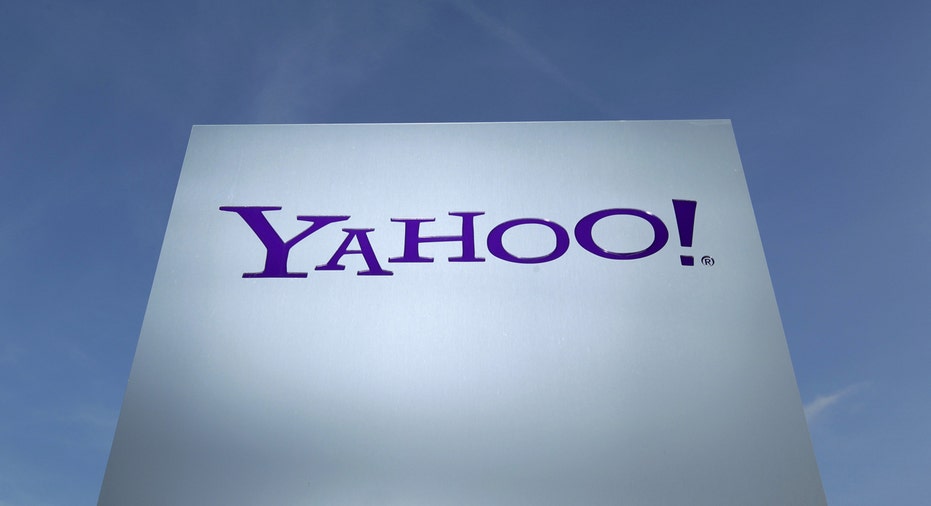Bidders Emerge for Yahoo's Internet Business

Several potential suitors are emerging for Yahoo Inc.'s core Internet business, from media and telecom giants to private-equity firms, as the beleaguered company weighs whether to put it up for sale.
Among the companies that would likely explore a purchase are Verizon Communications Inc. and Barry Diller's IAC/InterActive Corp., people familiar with the matter say. Others may be interested in pieces of Yahoo, if they become available, including News Corp., owner of The Wall Street Journal, and magazine publisher Time Inc., according to executives familiar with the situation.
A Yahoo spokeswoman didn't respond to a request for comment.
Despite Yahoo's struggles, the potential buyers would be attracted to the company's vast reach—its properties attract more than 200 million monthly visitors in the U.S. each month. For private-equity firms, the appeal may be that taking Yahoo private would allow drastic restructuring that would be more difficult in the glare of the public markets. A private-equity firm could, for example, decide to milk Yahoo for cash flow while cutting back on investment.
Yahoo Inc.'s board will be considering some significant strategic options at meetings this week, The Wall Street Journal reported Tuesday, including a sale of the core business and whether to proceed with a spinoff of its stake in Chinese e-commerce giant Alibaba Group, which is currently worth more than $30 billion.
Yahoo may opt not to sell the core business. Brian Wieser, an analyst at Pivotal Research Group, said in a research note Tuesday that he values that business at about $1.9 billion, not counting cash on hand. Another analyst, Youssef Squali of Cantor Fitzgerald, had valued it at $3.9 billion, not including cash.
Either valuation would be higher than Yahoo is currently receiving. Yahoo investors are assigning the core business a value of less than zero, based on the value of its stakes in Alibaba and Yahoo Japan.
SunTrust analyst Robert Peck said there could be many logical buyers for the Internet business, including Verizon, AT&T Inc., Comcast Corp., Walt Disney Co., and News Corp.
Anyone who picks up Yahoo's core business would inherit some acute problems. Yahoo's traditional strength, selling desktop display advertising to major advertisers, is in a broad decline. The company, once the first stop for many brands when spending ad budgets online, has been eclipsed by Facebook Inc. and Google Inc. Yahoo is expected to pull in 4.4% of the $58.12 billion U.S. digital ad market in 2015, according to research firm eMarketer, down from 5.1% last year.
For Verizon, acquiring Yahoo would bolster its growing advertising technology business. The telecom company already spent $4.4 billion in June on AOL. AOL has specialized in helping third-party websites sell more ads, while Yahoo brings with it a vast pool of registration data and email addresses. The combination of AOL's reach, data from Verizon's wireless business and Yahoo's data might help create a more formidable rival to ad tech behemoths Google and Facebook.
Yahoo and AOL have been linked as possible merger partners before. And AOL's chief executive, Tim Armstrong, stayed on at Verizon and could be in position to lead a combined Yahoo-AOL. However, such a deal also would create redundancies. For example, AOL has a video advertising platform, which it built through the 2013 acquisition of Adap.tv. Yahoo purchased a similar company, BrightRoll, last year.
Comcast, likewise, has been building up ad tech capabilities through acquisitions of firms such as FreeWheel and Visible World. For IAC, whose stable of Web properties includes CollegeHumor and About.com—and which recently hived off its Match online dating division—a deal with Yahoo could bring in a high-profile asset with tremendous reach on mobile platforms. Other analysts point to Japan's SoftBank Group Corp. as a contender for the Yahoo Internet business.
The rationale for traditional media companies is less clear. Yahoo still brings in billions in advertising revenue each year, and boasts a sizable sales force. For a company like Disney, Yahoo's audience and direct consumer data could be valuable for marketing its theme parks and movies. AT&T could look to use Yahoo's data pool and match what Verizon is trying to accomplish via its AOL acquisition.
David Benoit, Shalini Ramachandran, Jeffrey A. Trachtenberg and Lukas I. Alpert contributed to this article.



















